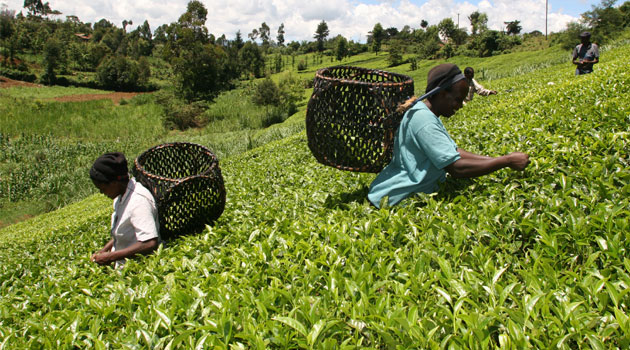
Unilever Tea Plantation workers in Kericho alone represented 11% of Unilever’s global workforce, the largest concentration of Unilever employees anywhere in the world/FILE
LONDON, United Kingdom, Jul 10 – Over 200 Kenyan nationals are currently seeking leave to appeal to the Supreme Court over a legal claim that the London-based corporate giant, Unilever Plc, failed to protect them from the foreseeable risk of ethnic violence on a Unilever tea plantation in 2007/08.
Law firm Leigh Day represents 218 Claimants who were victims of the violence, including the families of 7 victims who were brutally killed, 56 women who were raped and many others who were subjected to serious physical attacks.
When ethnic violence broke out in December 2007, following the announcement of the general election results, attackers are said to have invaded Unilever’s Tea Plantation in Kericho which has an estimated residential population of over 100,000.
The numbers of employees alone represented 11% of Unilever’s global workforce, the largest concentration of Unilever employees anywhere in the world.
A statement from law firm Leigh Day Wednesday, said, “Workers who were not indigenous to the area, together with their families, were targeted with clubs and machetes. Hundreds of workers were attacked, and the attackers committed widespread sexual violence.”
Lawyers from Leigh Day who are acting on behalf of the workers contend that Unilever placed their workers in a position of serious risk because most were from tribes that are not indigenous to the area and so were targets of harassment and violence during periods of social unrest, specifically during elections.
Daniel Leader, solicitor from law firm Leigh Day, said: “This was the biggest risk to the largest concentration of Unilever workers anywhere in the world. Unilever’s Kenyan tea workers were put in a vulnerable position by Unilever and yet the risk they faced was not considered.”
“The victims are clear that they warned managers about the threats they faced and yet Unilever failed to take measures to protect them, although they did protect management housing and company assets,” he added.
The Leigh Day statement said: ” These victims are living with the debilitating effects of lifelong injuries and psychiatric trauma, many of whom can no longer work. Instead of helping these victims Unilever has fought hard to prevent the claims from proceeding in the English courts, in the knowledge that the case cannot proceed in Kenya and thus deny them any access to remedy.”
“The way in which Unilever has dealt with this case to date calls into question whether they have a genuine commitment to the United Nations General Principles on Business and Human Rights,” asserted Leader.
The legal claims are being brought with the support of Kituo Cha Sheria (a leading Kenyan justice NGO) and REDRESS (an international human rights NGO).
The Kenyans claim that Unilever failed to take appropriate steps to protect them from the foreseeable risk of violence whilst taking steps to protect management housing and company assets.
The Leigh Day statement explains that the case was filed in the London High Court in 2015 and Unilever has vigorously fought the case to persuade the English Courts to decline jurisdiction in favour of the Kenyan Courts; adding that the claimants are clear that there is no prospect that the case can proceed in Kenya without placing them at significant risk of violence or intimidation.
According to Leigh Day, Unilever has therefore succeeded so far in blocking any prospect of justice for their Kenyan workers leaving the claimants with no alternative other than to appeal to the Supreme Court. Grounds of appeal were lodged on 29 August 2018.




































